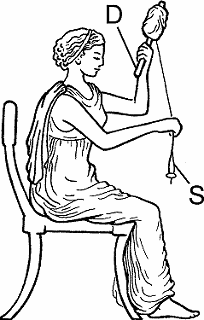1
a
: a staff for holding the flax, tow, or wool in spinning
b
: woman's work or domain
2
: the female branch or side of a family
Subscribe to America's largest dictionary and get thousands more definitions and advanced search—ad free!
Merriam-Webster unabridged

